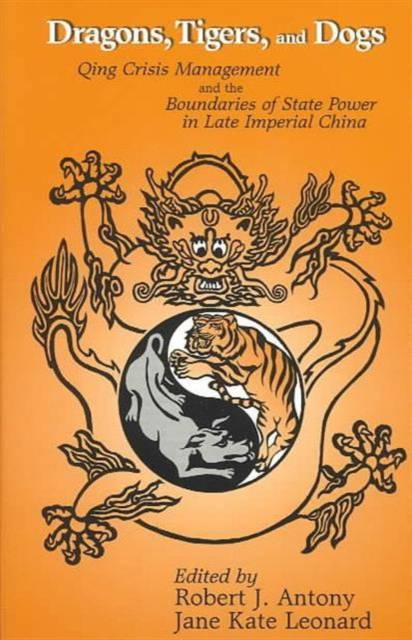
- Afhalen na 1 uur in een winkel met voorraad
- Gratis thuislevering in België vanaf € 30
- Ruim aanbod met 7 miljoen producten
- Afhalen na 1 uur in een winkel met voorraad
- Gratis thuislevering in België vanaf € 30
- Ruim aanbod met 7 miljoen producten
Dragons, Tigers and Dogs
Qing Crisis Management and the Boundaries of State Power in Late Imperial China
Omschrijving
Dragons, Tigers, and Dogs is a tightly-focused collection of studies that explores how Qing governing institutions and strategies worked in actual practice to address the practical problems and needs of a regionally diverse and culturally complex empire from the seventeenth to the early twentieth centuries. It highlights the Qing regime's ability to accommodate an astonishing variety of local governing environments in the management of short-term contingent crises and long-term evolutionary problems caused by changes in the social-economic fabric of Greater China during the Qing period. It argues that the Qing state should be viewed as a system of indirect rule because of its accommodative strategies of governance and its reliance on sub- and extra-bureaucratic power groups at the local level. Dragons, Tigers, and Dogs makes an important contribution to our understanding of the practical operation of Qing government, and its readability, thematic coherence, and inclusion of professionally-drawn maps and enhanced Chinese woodblock illustrations make this work attractive and accessible to students of late imperial China as well as Qing specialists.
Specificaties
Betrokkenen
- Uitgeverij:
Inhoud
- Aantal bladzijden:
- 352
- Taal:
- Engels
- Reeks:
- Reeksnummer:
- nr. 114
Eigenschappen
- Productcode (EAN):
- 9781885445148
- Verschijningsdatum:
- 31/03/2010
- Uitvoering:
- Paperback
- Formaat:
- Trade paperback (VS)
- Afmetingen:
- 142 mm x 216 mm
- Gewicht:
- 453 g

Alleen bij Standaard Boekhandel
Beoordelingen
We publiceren alleen reviews die voldoen aan de voorwaarden voor reviews. Bekijk onze voorwaarden voor reviews.










